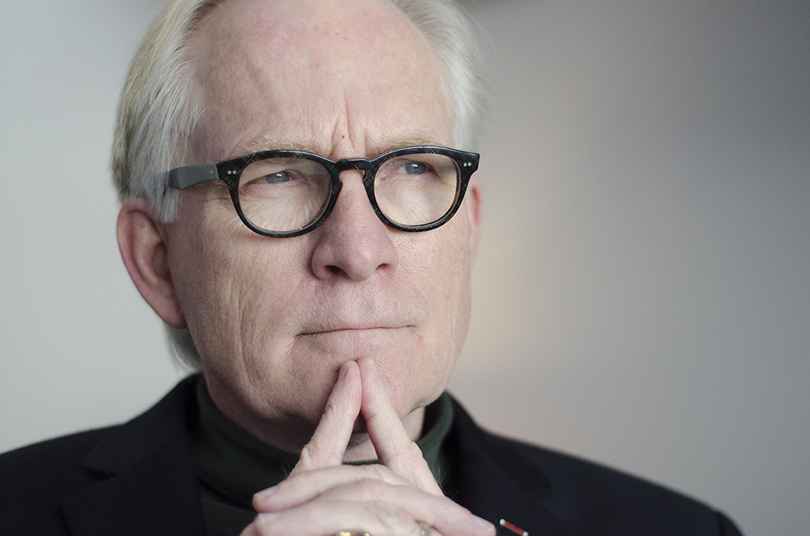Former international prosecutor weighs in on YouTube deleting thousands of videos documenting Syrian Civil War

Daily Orange File Photo
David Crane, a former international prosecutor, thinks YouTube allowing the videos to remain on the site will help prosecutors catalog data on war crimes.
In an attempt to rid extremist propaganda from its website, the Google-owned platform YouTube has removed thousands of videos documenting human atrocities occurring in the Middle East, according to CNN.
This past June, YouTube announced the transfer from workers monitoring its content to an advanced algorithm that identifies videos containing violent extremism and terrorism. The new technology has inadvertently deleted thousands of videos. Any content stemming from Syria, or various other conflict zones, are at a high risk of being deleted, according to The New York Times.
The Daily Orange spoke with David Crane, professor of practice at the Syracuse University College of Law, to discuss the implications of deleting such videos. Crane is a former chief prosecutor of the Special Court for Sierra Leone and founder of the Syrian Accountability Project.
The Daily Orange: To start off, can you talk about what kind of human atrocities are occurring in places like Syria?
David Crane: The conflict in Syria has been going on since March of 2011. It has consumed the lives of over half a million human beings, it has moved out of the country over 10 million human beings and it amounts to many international crimes — what we would call war crimes — and crimes against humanity being perpetrated by all sides.
The D.O.: What role do social media platforms, like YouTube, have in modern warfare?
D.C.: Well, it’s interesting. It’s a fascinating scenario. When I was the chief prosecutor of the International War Crimes Tribunal in West Africa, we went and found the information out the old-fashioned way. There was no such thing — even as late as 2005 — as social media.
All of these social media outlets have really affected the investigation of war crimes, crimes against humanity and genocide throughout the world in both a positive and a negative way. YouTube is just one of the social media (platforms) that collects, records and puts out on social media information related to war crimes … It’s a new challenge for international prosecutors like myself, as what to do with all of this information. Most of which is not useable in the court of law. So, that’s in a general sense my point.
The D.O.: Recently, YouTube changed its policy from workers manually taking down videos to an advanced algorithm that does it for them. This occurred in June, and since then thousands of videos documenting humanitarian crises have been deleted. What do you think are the immediate implications of removing such videos?
D.C.: What ends up happening is, instead of the consumer deciding whether to look at (the video) or not, we now have an arbitrary decision made by an algorithm that keeps it from the consumer, whether that be someone just interested in Syria, an investigator or a nongovernmental organization using that information for consideration for action.
The arbitrariness of it bothers me. I think it should be left to the consumer and the user of the data versus an algorithm. What ends up happening is that we don’t know what we don’t know.
Someone takes a video of an atrocity taking place in northern Iraq, Kurdistan or something in South Sudan or in Syria … a lot of times YouTube is very useful. You may hear of an incident and go on YouTube and actually see the incident itself, which confirms just in a general way that the incident took place. But, you know, sometimes we don’t even know if something took place now.
The D.O.: One way that YouTube has dealt with the backlash of removing videos is by reinstating them but with an 18-year-old age restriction. Do you think that this suffices? Or, do you think that there are negative implications of creating this image of an “adult-only” war?
D.C.: I’d rather have it the way they have compromised rather than completely shutting it off. It is gruesome. It is difficult. I don’t have a problem with an age restriction based on the content. I’m willing to have that compromise if it allows us to then have the adult consumer have the ability to observe and use this data.
The D.O.: What are the long-term effects of deleting so many of these videos?
D.C.: Well, then we don’t have them. And so we have potential corroborative information that could be of use to those who are cataloging, archiving or investigating war crimes taking place, wherever that may be around the world.




